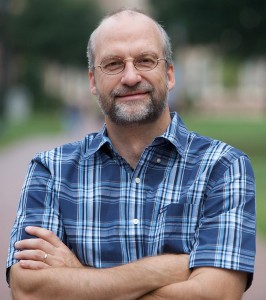 Meet the Author
Meet the Author
Christian Smith is Professor of Sociology and Director of the Center for the Study of Religion and Society at the University of Notre Dame. His research areas include “religion in modernity, adolescents, American evangelicalism, and culture.” Smith has written several books, including The Bible Made Impossible: Why Biblicism is Not a Truly Evangelical Reading of Scripture (2011), Souls in Transition: The Religious & Spiritual Lives of Emerging Adults (2009, with Patricia Snell), and Soul Searching: The Religious And Spiritual Lives Of American Teenagers (2005, with Melinda Denton).
Book Basics
Smith is not a biblical scholar or an academic theologian; he is a sociologist. His professional background and personal Evangelical religious experiences enable him to effectively assess the current state of Evangelical biblicism and trace its development (the task of “Part 1: The Impossibility of Biblicism”), but hamper his attempt to construct/reconstruct an alternative (the task of “Part 2: Toward a Truly Evangelical Approach to Scripture). While I would have welcomed the perspective of an Evangelical theologian as a co-author (perhaps Roger Olson of Truett Seminary whom Smith includes in his conversation about the proper understanding of the categories of dogma, doctrine and opinion – p. 134-136), the book offers an important contribution to the discussion of a rarely critiqued norm: Evangelical biblicism.
Smith argues that biblicism is currently the most prevalent Evangelical understanding. While varying groups define the term in differing manners Smith uses it to speak of “a theory about the Bible that emphasizes together its exclusive authority, infallability, perspicuity, self-sufficiency, internal consistency, self-evident meaning, and universal applicability” (p. viii). Using this definition, disciples of Jesus approach the Bible as a handbook, owner’s manual or blueprint for life that contains all of the answers one needs to live well. When put into practice the approach doesn’t work; rather than achieving unity in essentials and shared understanding, it results in pervasive interpretive pluralism and an inability to deal with the multivocality and polysemy that emerge. Smith’s alternative model is thoroughly Evangelical, in the historical sense of the word, emphasizing Jesus Christ as the interpretive key in a way that resonates more with the premodern church than the modern or postmodern church.
So What?
“Biblicism is impossible. It literally does not work as it claims that it does and should. Biblicism does not live up to its own promises to produce an authoritative biblical teaching by which Christians can believe and live” (p.173).
- Did you realize biblicism was the most common framework for American Evangelicals? Have you ever experienced it? If so, what was your response?
- How do you differentiate between dogma (nonnegotiable beliefs for all Christians), doctrines (important to a given group/denomination but understood as not essential for all Christians), and opinion (matters of personal preference)? How might more efforts to reassess the categories in which each item belongs be helpful on a personal level? on a congregational level? at the denominational level? as denominations and nondenominational groups seek to better understand and work with one another?
Christian Smith. The Bible Made Impossible: Why Biblicism is Not a Truly Evangelical Reading of Scripture (Brazos Press, 2011). ISBN: 9781587433030.